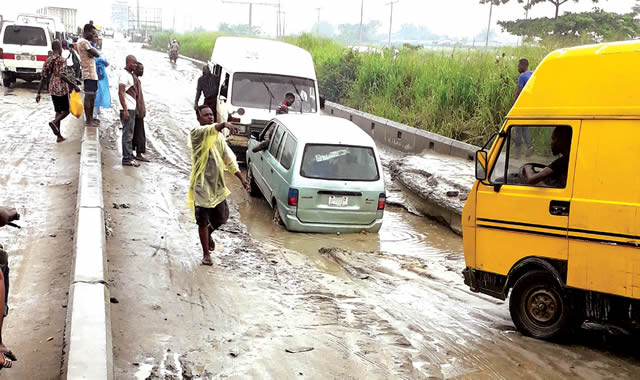
The Lagos-Badagry-Seme road, a crucial link between Nigeria and neighboring countries like Benin, has become a source of immense frustration for residents and commuters due to its poor condition. The road, once envisioned as a modern expressway facilitating trade and travel, is now riddled with potholes, uneven surfaces, and frequent flooding, which have made journeys extremely slow and hazardous.
The road’s deplorable state impacts various aspects of daily life. For residents, traveling short distances often turns into hours-long ordeals, affecting everything from access to essential services to the transport of goods. Commercial drivers and traders are hit particularly hard as the damage to vehicles from the road’s poor condition increases repair costs and delays. In addition, security issues have risen due to the long stretches where vehicles are forced to slow down or stop entirely, making travelers vulnerable to attacks.
Beyond the immediate economic and personal toll on residents, the road has larger implications for Nigeria’s trade. Lagos-Badagry-Seme road is a major route for cross-border trade with West African countries, yet its condition has hindered efficient transport, affecting regional commerce. While there have been promises from successive administrations to repair and expand the road, progress has been slow and inconsistent, leaving residents and businesses to bear the brunt of its neglect.
Improving this road is seen as crucial not only for easing the daily struggles of residents but also for enhancing Nigeria’s economic integration with its neighbors, as it remains a key gateway for trade within the Economic Community of West African States (ECOWAS) region.




